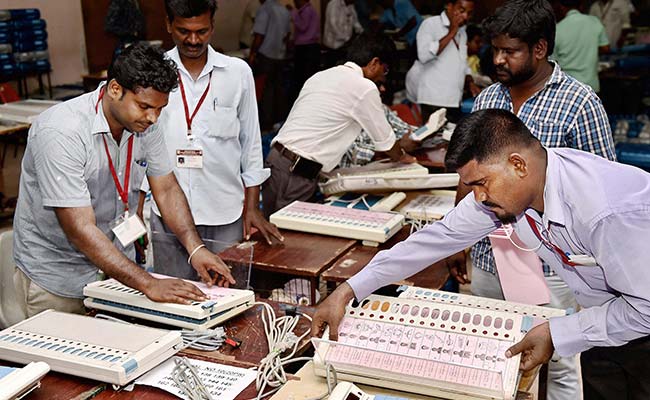
Assam Begins Vote Counting for BTC Elections Across 40 Constituencies

 :
| Updated On: 26-Sep-2025 @ 12:06 pm
:
| Updated On: 26-Sep-2025 @ 12:06 pmSHARE
The Bodoland Territorial Council (BTC) elections, a pivotal event in the political landscape of Assam’s Bodoland Territorial Region, saw vote counting commence at 8 am, determining the fate of 316 candidates contesting across 40 constituencies in five districts. This election is critical for shaping governance, development priorities, and political representation in the region. The election battle spans Kokrajhar, Udalguri, Chirang, Baksa, and Tamulpur, each with differing numbers of candidates reflecting the competitive nature of the elections and the significance of local political dynamics.
Kokrajhar emerges as the focal point of the electoral contest, with 100 candidates contesting across 12 constituencies. This makes it the district with the highest number of contenders, highlighting its political importance and the intense rivalry among parties and independent candidates seeking representation. The district also hosts a strong room designated for the counting of six constituencies, emphasizing its logistical centrality in the electoral process. The concentration of candidates here reflects Kokrajhar’s status as the administrative and political hub of the Bodoland Territorial Region, making its electoral outcomes particularly consequential for the council’s political balance.
Udalguri follows with 68 candidates across 10 constituencies, representing another significant center of electoral competition. The district’s contests are expected to influence local governance and resource allocation, given the diverse demographic and socio-economic profile of its population. Similarly, Chirang has 56 candidates contesting in seven constituencies, Baksa features 52 candidates in six constituencies, and Tamulpur sees 40 candidates in five constituencies. The distribution of candidates across these districts demonstrates the broad political engagement and the multiparty nature of the elections, ensuring that voters have multiple options and that electoral outcomes will reflect local preferences and regional issues.
Security and administrative measures have been a crucial part of the counting process. A large deployment of security personnel ensures that the counting is conducted in a peaceful and orderly manner, minimizing the risk of disturbances. Authorities have emphasized strict arrangements and protocols to prevent any untoward incidents during the process. This is essential not only for maintaining law and order but also for instilling public confidence in the transparency and credibility of the electoral process.
The BTC elections are not merely about selecting representatives; they hold broader implications for the political and developmental trajectory of the Bodoland Territorial Region. The elected council will have the authority to make decisions on local governance, infrastructure development, education, healthcare, and welfare schemes, directly affecting the lives of residents across the region. Consequently, the outcome of these elections will play a critical role in determining policy priorities and shaping the socio-economic development of Bodoland.
The counting process, therefore, carries immense significance. Today’s proceedings are crucial not just for individual candidates or political parties but also for the overall governance and political stability of the region. The results will influence the formulation of policies, administrative decisions, and regional political alignments for the coming term. Political analysts, parties, and residents alike are closely watching the counting, aware that it will set the tone for the next phase of Bodoland’s development and governance.
In conclusion, the BTC elections and the ongoing vote counting are central to defining the political future of the Bodoland Territorial Region. With 316 candidates across 40 constituencies, high stakes in Kokrajhar, Udalguri, Chirang, Baksa, and Tamulpur, and meticulous security and administrative arrangements, the elections underscore the importance of democratic participation, regional representation, and governance in Bodoland. The outcomes will significantly shape the region’s political landscape, policy priorities, and development trajectory, making today’s counting a landmark event for the Bodoland Territorial Council and the people it serves.